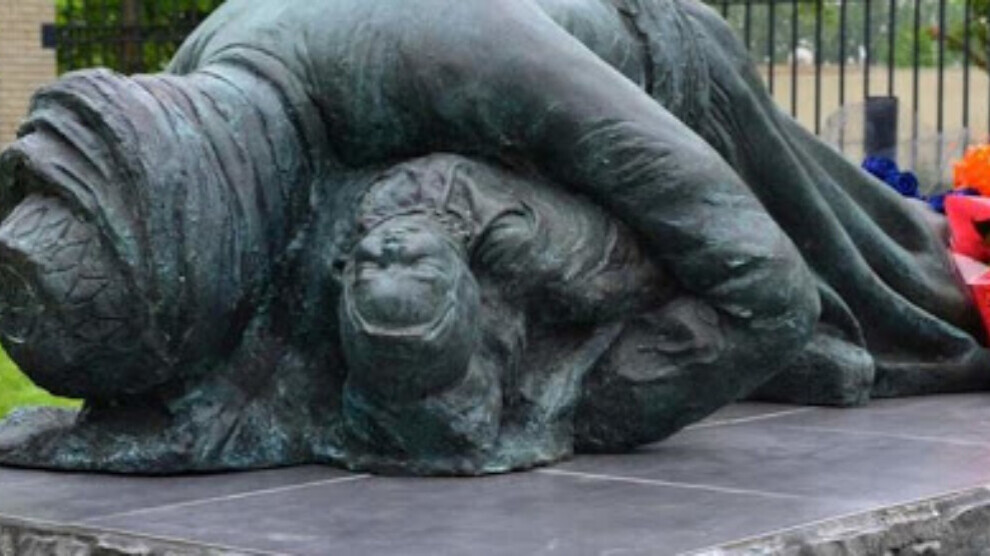KNK commemorates victims of the Anfal genocide in South Kurdistan
KNK commemorates victims of the ‘Anfal’ campaign of genocide carried out by the Saddam regime against the Kurds in southern Kurdistan (northern Iraq).
KNK commemorates victims of the ‘Anfal’ campaign of genocide carried out by the Saddam regime against the Kurds in southern Kurdistan (northern Iraq).

Iraqi dictator Saddam Hussein, toppled in 2003, massacred around 200 thousand Kurds in a genocidal campaign in eight phases, lasting from 12 March 1986 to 7 June 1989. The most notorious genocidal attack of the campaign was the chemical attack on Halabja on 16 March 1988. According to official figures, 182,151 victims were buried in mass graves. Remains of only 18 thousand Kurds have been reached so far.
In addition to tens of thousands of people being massacred in the Anfal campaign, 4,500 villages and 30 districts were leveled to the ground. The heaviest toll was recorded in Hewler plain, Balisan valley, Sergelu-Bergelu region in Sulaymaniyah, Şanexşê, Halabja, Karadagh, Germiyan region and Ekser.
The Kurdistan National Congress (KNK) released a statement remembering the victims of the genocidal campaign, saying the following:
“Throughout history, the Kurdish people have been through countless international crimes such as massacres and genocides. The occupiers of Kurdistan have used all their might to annihilate the Kurdish people. During the past century, the Kurds in four parts of Kurdistan have been subjected to inhuman schemes and the international community has failed to come up with a solution fitting the legitimate cause of the Kurds during this period of time.
35 years have passed since the Anfal genocide perpetrated in South Kurdistan by the Baath regime which sought to destroy the people of Kurdistan. The plans of the invaders, however, have failed. After 35 years, the governments of Iraq and Kurdistan Region are yet to meet the demands of the families of the Anfal victims and pay compensation to their relatives. They have failed to turn the genocide into a global case and present it to the world as such.
While mass graves have not yet been opened, relatives are still waiting to retrieve the remains of their beloved ones.
We call on all officials to form a national strategy about Anfal as the relatives of victims complain about the indifference of the government and the parliament. The officials in Iraq and Kurdistan Region must take the people’s anger seriously and work for a solution.
On the 35th year anniversary of the Anfal genocide, we remember all victims with respect and greet their families.”